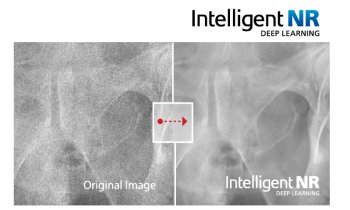News • Combining spatial transcriptomics, pseudotime and machine learning
More precise than PSA: New biomarkers for prostate cancer found in urine
A newly published study involving researchers from Karolinska Institutet indicates that prostate cancer can be diagnosed at an early stage through a simple urine sample.
With the aid of AI and extensive analyses of gene activity in tumours, they have identified new biomarkers of high diagnostic precision.
Prostate cancer is one of the most common causes of male death globally. One of the main diagnostic hurdles is the lack of exact biomarkers able to identify the presence of an early tumour. In this present study, researchers at Karolinska Institutet (Sweden), Imperial College London (UK) and Xiyuan Hospital, China Academy of Chinese Medical Sciences, Beijing (China), have identified new, precise biomarkers. The results are presented in the journal Cancer Research.

Image source: Karolinska Institutet/Linköping universitet
On analysing the mRNA activity of all human genes in thousands of individual cells in prostate tumours, and knowing the position and degree of cancer of each cell, the researchers were able to construct digital models of prostate cancer. The models were analysed with AI to find proteins that can be used as biomarkers. These biomarkers were then analysed in the blood, prostate tissue and urine of almost 2,000 patients.
The researchers identified a set of biomarkers in urine that were able to indicate the presence and severity of prostate cancer with a high degree of precision. According to their calculations, they surpass PSA, which is the blood biomarker in current clinical use. “There are many advantages to measuring biomarkers in urine,” explains principal investigator Mikael Benson, senior researcher at the Department of Clinical Science, Intervention and Technology, Karolinska Institutet. “It’s non-invasive and painless and can potentially be done at home. The sample can then be analysed using routine methods in clinical labs.”
Large-scale clinical trials are being planned for the next phase of the research. One such is being discussed with Professor Rakesh Heer of Imperial College London, co-author of the study and head of TRANSFORM, the UK’s national prostate cancer study, which offers a platform for expediting the testing of promising biomarkers. “New, more precise biomarkers than PSA can lead to earlier diagnosis and better prognoses for men with prostate cancer,” says Dr Benson. “Moreover, it can reduce the number of unnecessary prostate biopsies in healthy men.”
The study was largely financed by the Swedish Cancer Society, Radiumhemmet and the Swedish Research Council. Mikael Benson is the scientific founder of Mavatar, Inc. There are no other reported conflicts of interest.
Source: Karolinska Institutet
30.04.2025











